The Great Pacific Road Trip: Part 2
Read part one here.
The plan for this stage of my trip is to finish my work trip to San Diego, drive out to Palm Springs and pick up my ’75 Ford LTD, and then drive it to the Port of Oakland. It all sounds so simple, right?
Infiniti QX80 Goes Glamping in Russia
Infiniti’s wanderlust has taken the QX80 to other faraway locations, but none quite as exotic as Privolzhskoe, Tver Oblast, Russia, to go glamping in Villi Ulei’s geodesic domes.
In what’s termed a comfort zone for climatic conditions in Russia, temperatures range from 9-degrees Fahrenheit in the winter, to a high of 66-degrees in the summer. As you can see, snowfall is abundant in the region, from a low of about 16 inches, to almost 32 inches, and it spans anywhere from four to five months of the year. Home to 1.35 million Russians, 30% of whom are Russian Orthodox, it might seem like a great place to go if it were summer at the Boishoe Zavidovo, when Nashestvie, the largest Russian rock festival, is being held.
Tokyo Auto Salon 2021 Cancelled
The Tokyo Auto Salon, one of the world’s top shows for modified vehicles, has been canceled. Scheduled to take place January 15-17, 2021, the event was canceled due to concerns over the outbreak of COVID-19.
Russians Find the Ford EcoSport Overpriced: Report
Russia, a large country covered mostly in taiga forest and tundra, still loves the Lada 4×4 (née Niva) four decades after its launch, but Ford’s EcoSport isn’t getting the same kind of affection four years after its launch.
Ford’s EcoSport, which burst onto the North American subcompact crossover scene at the beginning of the year, began production at a joint facility in Russia in 2014 but, as that country’s car buying climbs in the wake of a recession, buyers aren’t springing for the EcoSport like they once were. Ford’s throttling back production while claiming regular downtime. Critics blame the model’s price, as well as its diminutive size.
Surely no such critics exist on this side of the Atlantic.
The Possibility of a Hotter Honda HR-V Emerges
Suffice it to say no one was talking about Honda’s HR-V subcompact crossover until this news broke. It sells well, quite well, but the little ute — like most subcompact crossovers — may as well be invisible.
What are people suddenly talking about? The emergence of an HR-V Sport on the other side of the Atlantic, boasting a turbocharged 1.5-liter VTEC four-cylinder that’s good for 180 horsepower — just like the one found in the Civic Sport.
Volkswagen Has a Low-priced EV Plan to Keep Rivals At Bay: Report
Volkswagen doesn’t want competitors unsurping its electric car efforts, so there’s a plan afoot to give buyers what they want at a much lower price, sources claim. Two reports, citing those with knowledge of a strategy not yet approved by the automaker’s supervisory board, state the company plans to go cheaper than its upcoming line of I.D.-badged EVs.
How cheap, you ask? How about $21,000?
Sure, GM Europe Is Gone, but the Automaker Hasn't Entirely Pulled up Stakes
General Motors vacated the continent in fine style last year, flushing the Vauxhall and Opel brand to Groupe PSA in a deal worth about 2.2 billion Euro. However, it turns out Ren Cen remains as a lingering presence in moving metal across the pond.
All this was spurred by a tweet by David Shepardson of Reuters revealing The General sold about 3,000 vehicles in the first nine months of 2018, compared to 684,000 during the same period one year ago. This makes sense, given the sloughing of Vauxhall/Opel.
Since the word “Europe” shows up exactly zero times in GM’s Q3 earnings report, it left your author wondering: what models comprised those sales? Not the ones I thought, as it turns out.
After 2019, the Only Volkswagen Convertible Will, of Course, Be an SUV
Say the words “drop-top utility vehicle” and American minds desperately conjure up memories of Chevrolet, GMC, Ford, Dodge, and International Harvester models of the 1970s — anything to avoid visions of the defunct Nissan Murano CrossCabriolet and somehow still alive Range Rover Evoque Cabriolet. That latter model, it should be noted, is not for everyone.
In the Volkswagen stable, one convertible still exists in the North American market — the Beetle Cabriolet — but that model disappears after 2019. The retractable hardtop Eos left the scene a couple of years ago, hot on the heels of the long-running Golf Cabriolet. In Europe, VW dealers stock exactly zero convertibles, but that will soon change.
Right around the time Americans lose access to a drop-top VeeDub, Europeans will get a new one. And, naturally, it will be an SUV.
'As Quickly As Possible': Volkswagen Partnership Seen As Key to Ford's Overseas Hopes
Ford Motor Company is engaged in hurried discussions with Volkswagen, with the German automaker seen as a sure-fire way to reverse falling fortunes in overseas markets. Ford needs help in Europe and Latin America, especially — a situation made clear in Thursday’s quarterly earnings report.
Since signing a Memorandum of Understanding with VW in June, the scope of Ford’s partnership has expanded from its initial focus on commercial vehicles. There was already room in the MOU’s wording for the two companies to go further. Now, it looks almost certain that passenger vehicles will become part of the plan.
North American Buyers Couldn't Prop Up Ford's Global Business in the Last Quarter
China, Europe, and South America all conspired to sink Ford’s profits in the third quarter of 2018, with the automaker posting a 37 percent net income drop compared to the same quarter a year ago.
The earnings report came the same day Ford announced the creation of a standalone Chinese business unit, Ford China. Dismal overseas performance didn’t come as a shock, however, as these headwinds were also felt in previous quarters, albeit not as strongly. That hasn’t stopped a barrage of questions directed at CEO Jim Hackett over how he plans to build a successful operation outside of America’s borders.
As Ford Takes a Hit, Hackett Appeals to Trump to End Trade Disputes
Ford’s decision to construct the current-generation F-150’s body purely of aluminum paid off in terms of lightweighting, fuel economy, and sales, but rising commodity costs over the past couple of years eroded some of the financial benefit. There’s far greater headaches facing Ford these days, as the industry grapples with tariffs on not just imported aluminum and steel, but vehicles as well.
A second income-sucking tariff hit in July, when the U.S. applied an import duty of 25 percent on a slew of Chinese goods, prompting China to up its own tariffs on American goods, including automobiles. Ford isn’t having it. Having already lost $1 billion in profit, CEO Jim Hackett has a message for President Trump.
Nissan's New Juke Will Remain Uncompromisingly Weird
Nissan may have discontinued the North American-market Juke earlier this year, but the model remains a popular item in the European market, dating back to its 2010 debut. There, its polarizing looks and role as an enjoyable to drive city car helped keep the model relevant.
As even the freshest of takes can get stale after seven years, the Juke is due for a redesign. But will Nissan change the formula to give the small crossover broader appeal, or will weirdness, once again, rule the day? Considering Americans no longer have to contend with its quirks, as we have the subcompact Kicks working as its replacement, there’s real no reason for the brand to pull any punches. Likewise, Nissan global design boss Alfonso Albaisa’s description of the second-generation model promises anything but an average automobile.
Back in Time: GM Uzbekistan Increases Production of Cars Forgotten Here
Foreign markets are no stranger to selling cars that have long gone out of production here in the States. The VW Beetle was produced for sale in Mexico well after the calendar flipped into Y2K, while the Nissan Tsuru — essentially a Sentra from the mid-90s which remained in production until 2017 — bit the dust after crash tests showed it to be the structural equivalent of a wet cardboard box. The Peugeot 405 stuck around as a new car in Iran longer than just about anywhere else on the planet.
GM has a plant in Uzbekistan employing 8,000 people, with the capacity to make about 250,000 cars a year. Some nameplates you’ll recognize, like the Chevy Tracker. A few are renamed versions of machines long-gone from the American market. And others are familiar names dressed up in strange sheet metal.
Green With Envy: Lexus Giving Other Continents Far More Colorful LC 500s
The Lexus LC 500 is a phenomenal automobile, mainly because it has one of the best interiors I’ve ever plopped myself into, but you don’t see very many on the road. Lexus in on course to sell about 2,000 LCs this year in the United States, which isn’t bad for a vehicle that can be easily optioned into the six-figure range, but that doesn’t make it a high-volume automobile. In fact, it’s actually less common in Europe than a Ferrari 488.
Rarer still will be the LC 500’s new limited variant — the not-so-cleverly named LC Limited Edition. Why Toyota’s luxury arm didn’t decide to dub it the Yellow Edition is beyond us, as that’s the main aspect setting it apart from the rest of its ilk. Doubly confusing is that the model seems to be limited to Europe.
However, based on other colorized LC models cropping up elsewhere, we could be in store for a North American special edition eventually.
Foreign Influence? Europe Tilts Even Further Into SUV Mania; Diesel Popularity Plummets
The continent that spawned microscopic postwar bubble cars and made the “city car” segment a thing is moving ever further away from its automotive past. European buyers, perhaps influenced by their American counterparts, are beginning to realize they truly can have it all, adjusting their buying habits accordingly.
Of course, by “all,” we mean all the cargo space.
In a Worse-case Trade Scenario, Buick's Fate Hinges on a Tiny Crossover
The second quarter of 2018 returned pleasing sales figures for General Motors, but there were no champagne corks popping over Buick’s performance. While GM’s sales rose 4.6 percent compared to Q2 2017 (and 4.2 percent year-to-date), Buick sales headed in the opposite direction — down 12 percent in the quarter, and roughly six-tenths of one percent over the first half of the year.
Swirling menacingly in the background of all of this is a threat from President Trump to levy a 25 percent tariff on all automotive imports, a move that would leave Buick especially exposed. As numbers crunched by Automotive News show, the only thing sparing the brand from an emergency overhaul, should such a scenario come to pass, is a subcompact crossover — one which may or may not be exempt from the proposed tariffs.
It's Happening Again: Ford Europe Wants to Shift Attention/Money Away From Cars
In an earlier analysis of Ford’s lackluster share price, we noted that Europe and China posed a significant problem for the automaker’s bottom line. Europe, which was previously pretty good to the brand, has gradually lost its share of the market since 1994. While Ford still moves a lot of metal in the region, something’s definitely wrong.
On Wednesday, Ford announced that its European operations had endured a $73 million second-quarter loss. It’s anticipating a full-year loss in the region after earning $234 million last year. “We’re extremely dissatisfied with our performance in Europe,” said CEO Jim Hackett.
Something has to be done to avoid further setbacks. According to Jim Farley, Ford’s head of global markets, the clear remedy is concentrating on vans and crossovers because that’s where the money is. It’s a similar strategy to what’s being done in the United States, where Ford eventually aims to cull the lineup to a point where the Mustang is the only vehicle that qualifies as a traditional car. But is it the correct one, considering how we’ve arrived at this point?
Mike Manley Hits the Ground Running As Storm Clouds Gather Over FCA
Former Jeep and Ram boss Mike Manley was a top choice among the candidates competing to succeed Sergio Marchionne, but no one could have expected his ascension to the CEO’s chair would occur in such a sudden, tragic manner.
During his first earning call, Manley was forced to address not just his predecessor’s death — which occurred mere hours before investors, analysts, and journalists picked up the phone — but also the automaker’s slipping grasp on the Chinese market. FCA’s revenue and net income took a haircut in the second quarter of 2018. The company’s share price plunged in the wake of news of Marchionne’s death. And, last but not least, there’s tariffs flying left and right, cutting into the automaker’s earnings — indeed, the company has already readjusted its earnings forecast downward.
Some first week on the job.
You'll Never Guess Which Car Shoppers Distrust Chinese Vehicles the Most
Nah, that’s completely false. You know exactly which car buyers would turn up their noses at the prospect of bringing home a brand new Geely or GAC. (Aren’t these brand names inspiring?)
After becoming familiar names in Europe, new tariffs have made the imminent influx of Chinese-branded vehicles into the U.S. less than certain. Suddenly, the 2018 Detroit auto show, with its big display of shiny new GACs (including a luxurious minivan with La-Z-Boy-like rear seats), seems so long ago.
But pretend for a second that the new tariffs don’t exist, and that Chinese automakers are poised to open up American showrooms tomorrow. Who’s likely to consider one? Who isn’t? A recent study will almost certainly not surprise you.
PSA Really Wants to Get You Into a Peugeot or Citron, but U.S. Fans Had Best Cross Their Fingers
PSA Group has a North American headquarters in Atlanta and it wants to use it. The French automaker also has a reentry plan that’s already underway. By the middle of the coming decade, we could all be behind the wheel of a French car (presumably after trading our Dodge Grand Caravans for the Citroën SpaceTourer Rip Curl).
Well, that might not happen — not if the U.S. imposes tariffs on the European Union, anyway. PSA North America Larry Dominique seems pretty worried that President Trump’s eagerness for tariffs could kibosh the company’s return, leaving mournful American francophiles gazing lustily over the Canadian border as PSA goes wild in Quebec.
Volvo's Already Shuffling Production to Avoid Tariffs
Unlike Volvo’s S90 sedan, which is built half a world away from its V90 wagon stablemate, the Chinese-owned Swedish automaker has some flexibility in where it sources its XC60 crossover. Two plants — one in China, one in Torslanda, Sweden — crank out the second-generation utility vehicle, but the U.S. market gets its full share from the Orient.
After the Trump administration imposed a tariff of 25 percent on Chinese-built vehicles, Volvo’s XC60 suddenly found itself dragging a financial anchor. Hardly a great situation for a model that outsold all other Volvos in the U.S. last month. To side-step the tariff, Volvo’s already making changes.
Say goodbye to the Chinese XC60.
The Best Ford Focus Sedan Is the One (Almost) No One Wants
Think back to the very early days of the previous decade and memories of awful mainstream rock compete with visions of the first-generation Ford Focus sedan. It was everywhere, and quite a few people has quite a few problems with theirs. By the end of the decade, however, those issues were mainly in the rear-view, as Ford was busy preparing to heap dual-clutch transmission woes onto its customers.
Now, the Focus sedan’s officially dead as the Blue Oval embarks on a nearly car-free voyage to the future. Only the faux crossover “Active” version of the next-gen 2019 Focus stands to see any customers in North America, but it’s a privilege reserved only for citizens of the United States. Canucks need not apply.
Too bad, as the next-gen Focus sedan’s a looker. Its designers aren’t exactly thrilled that so many countries have taken a pass.
World's Cheapest Stripper Bites the Dust; Disinterested Public Barely Mourns
While our Ace of Base series delights in revealing just how bargain basement a mainstream vehicle can get, none of those rides hold a candle to the spartan purgatory that was the Tata Nano.
Billed as the world’s cheapest car upon its release in 2008, the Indian-market four-door was tailor-made to lure that country’s growing market of would-be vehicle owners off motorcycles and into a car with two cylinders, 37 horsepower, and a rear hatch that didn’t open.
Not unexpectedly, the vehicle quickly developed a stigma.
Mr. Musk Goes to China, Vehicles to Pour Forth
Tesla’s sole assembly plant in Fremont, California won’t be lonely for long. A preliminary deal reached between the automaker and the government of Shanghai could see a new assembly plant start production in about three years’ time. The Chinese plant would most likely build Model 3s and upcoming Model Y crossovers, Bloomberg reports.
Assuming Tesla can scrounge up the $4 to $5 billion needed to complete construction of the facility (a Goldman Sachs estimate), the plant could produce up to 500,000 vehicles per year. And it just so happens that Shanghai has a free trade zone.
Volkswagen's Newest Crossover Is Yet Another VW Crossover America Can't Have
Following Volkswagen’s disastrous, reputation-fouling diesel scandal, the brand quickly pivoted to utility vehicles in a bid to recapture lost U.S. sales. So far, so good on that front. The Atlas is a strong contender in the midsize field and the new-generation Tiguan saw a surge of buyers after VW added a third row and piles of length.
Still, the lineup isn’t fully fleshed out. While the old-generation Tiguan (called the Tiguan Limited) remains as a small crossover offering, that model disappears for the 2019 model year. VW hasn’t even named its compact successor, a model initially geared solely for the North American market.
Meanwhile, overseas buyers already have two small VW crossovers to think about — the T-Roc, already on sale, and now the T-Cross.
Tariffs Would Slam the Jeep Renegade, Force FCA to Weigh Options
Jeeps smallest U.S. offering stands to be hit hard by proposed import tariffs, according to calculations from an investment advisory firm, and the volume of vehicles Fiat Chrysler brings in from outside U.S. borders would see the automaker take it on the chin.
With the Trump administration mulling a range of tariffs, the firm tabulated just how much the import duties could cost FCA. If the tariffs come to pass, expect to see fewer Jeep Renegades on your local dealer lot.
Wagons Ho! What's Going on With the Station Wagon/Shooting Brake/Estate Car Market?
Ugh, you say. Wagons. A painfully uncool body type you swore off during childhood and haven’t reneged on since. A body type drooled over and feted by journalists who never put their meagre income where their mouth is. Yes, wagons. They remain part of our our automotive landscape, just a vanishingly small part of it.
But who’s buying them, and where? We have the answers.
Take Note, Hollywood: Germany Cancels Prestigious Auto Awards Due to Criminality, Awkwardness
The organizers of televised U.S. awards shows, who annually serve up a night of lectures, sermons, hypocrisy, and guilt for an increasingly small audience, should realize that the show doesn’t necessarily have to go on.
It’s certainly not going on in Germany. Axel Springer, a top publishing house for numerous German media sources, including AutoBild, has now wrestled the prestigious Golden Steering Wheel award out of everyone’s hands. There’ll be no thanking of grade school teachers by auto execs this year. Blame, well, the auto industry.
America's Favorite Sedan to Take a Boat Trip
The Toyota Camry holds the remarkable distinction of being a midsize sedan with U.S. sales that actually increased over the first five months of 2018. Impossible, you say. It can’t be. You’d trade your kids for a crossover, but wouldn’t stoop to pick up a “free sedan” voucher if you passed one on the sidewalk.
Well, it’s true. Year to date, Camry sales are up 2.1 percent in the United States. Last year’s introduction of an eight-generation midsizer seemed to halt the sedan’s sales decline, though we’d be fools to think it’s anything other than a temporary lift. Camry volume sunk 7.9 percent in May. June could send the model into the negative.
Toyota seems aware of this, too. Maybe that’s behind the decision to send the Camry somewhere it hasn’t been in years.
U.S. to Hit Chinese-built Vehicles With 25 Percent Tariff; China Fires Back
Just in time for the weekend, an escalation in the ongoing trade wars has seen the Trump administration announce a 25 percent tariff on $50 billion worth of goods imported from China. These tariffs include automobiles. For its part, China retaliated by applying a further 25 percent tariff on a similar amount of American goods, including automobiles.
The move comes less than a month after China announced a plan that would lower import duties and eventually allow foreign automakers to set up shop without a joint Chinese partner. Of course, that was then, and this is now.
Before E-Power Makes It Here, Nissan First Has to Send It to the Gym
Whether the buying public likes it or not, there’s a tsunami of electrified powertrains headed for U.S. shores. Automakers the world over hope to beat their rivals in the race to a “fully electrified” lineup, which just means there’ll be — at a minimum — a hybrid variant in each model line.
It’s far less sexy than headlines make it sound. Still, if you’re into technology and saving money at the pumps (not necessarily at the dealer), it’s hot stuff. Nissan’s taking an unconventional route in this race, forgoing a conventional hybrid setup for an inexpensive stopgap solution all its own.
The system, called e-Power, is already a hit in Japan. But before it makes its way into high-end Nissan products (read: Infiniti), it first needs to upsize the system for American-sized vehicles travelling at American-sized speeds. That’s not as easy as it sounds.
America's Future French Cars Will Have German Engines
Assuming PSA Group‘s plan to re-enter the U.S. market isn’t thwarted by an all-out tariff war, you can expect to see Peugeots or Citroëns plying the roadways of America by the middle of next decade. Maybe it’ll be sooner than that.
Whenever they arrive, the vehicles will boast four-cylinder engines designed in Germany by Opel, a former General Motors division whose parent decided to put it up for adoption.
GM to Europe: Don't Be so Down on Diesel
Even though General Motors gleefully offloaded its European division to the French, it still maintains a slight presence in the region. A powertrain engineering center in Turin, Italy remains in the GM fold, which gave the automaker an opportunity to dish on a much-maligned propulsion source: diesel fuel.
Hey, this stuff’s still useful, the automaker’s CEO of global diesel development, Pierpaolo Antonioli, told an uncertain European crowd this week.
Midsize Ram Pickup Coming to the U.S., Replaces a Mitsubishi-based Model Overseas
Years of on-again, off-again rumors about the addition of a baby Ram truck to Fiat Chrysler’s product line has led us to this day. While the automaker’s Capital Markets Day presentation in Italy focused primarily on Jeep and the two Italian luxury divisions — three of the four global brands highlighted in its five-year plan — Ram sees new product, too, including a midsize truck.
CEO Sergio Marchionne wants its core brands spread as far and wide as possible, and that means occupying new segments. For Ram, this means the large off-road truck niche and the growing midsize market. “We’re working on it,” is what Marchionne said two years ago after being asked about a midsize Ram.
FCA had kiboshed the idea in 2015, claiming that developing a new midsize would prove too costly. And yet here we are.
Chrysler's Not Dead, It's Just Wounded
Rampant speculation on the Chrysler brand’s demise was premature. During a Q&A session in Italy on Friday, Fiat Chrysler Automobiles CEO Sergio Marchionne announced that the brand has a future, but it won’t be as big as it once was.
Already, the brand pales in comparison to even the recent past. In 2005, Chrysler sales in the United States topped 600,000 vehicles (we all remember those Sebrings), and the brand plateaued above 300,000 annual sales in the period spanning 2012 to 2015. Last year’s tally? Just over 188,000 sales — not surprising, given its lineup now consists of a single, aging large sedan and a modern minivan. U.S. sales are down 9 percent over the first five months of 2018.
Marchionne’s remarks proved an earlier Bloomberg report true: Chrysler will become a North American brand. And Fiat? Sorry, it doesn’t look like it’s going to work.
It's a Deal: GM, South Korea Promise Billions for Endangered Korean Division
The Buick Encore isn’t going away anytime soon. Built by GM Korea, the little crossover, its Chevrolet Trax twin, and the diminutive Chevy Spark will continue chugging out of the country’s three GM assembly plants and making a boat ride to the U.S., all thanks to a multi-billion dollar turnaround deal.
Faced with declining domestic sales and reduced exports, GM’s Korean division appeared on the edge of bankruptcy last week. A warring union resistant to the division’s wage and bonus demands and a hesitant South Korean government didn’t help matters. On Monday, however, the union representing 26,000 workers agreed to the automaker’s wage and bonus concessions. Members approved the deal today.
With GM’s end of the bargain — free up $600 million in operating funds — now complete, the taps can start flowing. There’s now $4.35 billion earmarked to turn the troubled automaker around.
It Might Take More Than American Enthusiasm to Make This Volkswagen Truck a Reality
Volkswagen’s Atlas Tanoak concept was one of the few interesting products to emerge from last week’s New York auto show, but the Atlas-based pickup remains a one-off for now. The automaker plans to judge consumer interest before making a decision to scrap the idea or sign off on a production version. Naturally, with VW staking it’s U.S. fortunes on light trucks, the volume-seeking company would like to get as much mileage out of its Atlas architecture as possible. See the two-row Atlas Cross Sport for Exhibit B.
But does the Tanoak’s future hinge on Americans expressing an overwhelming desire for a VW truck? Not entirely.
GM Korea Threatens Bankruptcy If Union Doesn't Budge
South Korea’s powerful labor unions have the ability to make vehicle assembly a non-starter, and the country’s workers have been known to strike like it’s going out of style. Just ask Hyundai about that.
As it seeks to bring its operations in the country back from the brink, General Motors would prefer to see its workers’ union bend to its will, agree to the concessions demanded of it, and generally get out of the way. This isn’t happening, so GM’s now playing hardball.
Agree to our cost-cutting plan, the automaker says, or GM Korea declares bankruptcy.
Ford and Mahindra Hop Deeper Into Bed; Joint SUVs Planned
China got a headstart in the “countries with over a billion people who suddenly love owning a car” race, but India’s trying its best to catch up.
With a growing pool of consumers ready and willing to hand over cash for a car, Ford Motor Company knows partnering with a local company that knows the lay of the land is a speedier and cheaper route to profits, so last year it formed an alliance with Mahindra Group. You know Mahindra — the company currently building a retro Jeep-shaped ATV for nostalgic Americans.
This week, the two companies further consummated their bond by signing off on the joint development of SUVs.
As It Tries to Gain Traction in Europe, Jeep Brand Boss Promises 'the Year of Jeep'
Two years ago, Fiat Chrysler CEO Sergio Marchionne could barely contain his enthusiasm for the Jeep brand and its barely-tapped global appeal. A sales juggernaut in America, the rugged, go-anywhere brand had a stable of models ripe for the global picking. All it needed was more local production, more new models, and voila — world-straddling dominance.
Two years later, and the brand’s growth predictions are starting to look less than plausible. Marchionne hoped for worldwide Jeep sales of 2 million vehicles in 2018, but last year’s sales may well have been a glass of cold water in the face. While the brand’s strategy could still pay off, it’s going to take longer than expected to reach Marchionne’s target.
Forget the minor markets — Europe needs to learn to love Jeep, America needs to pick up the pace, and China can’t back off now.
Is Europe Saving the Mustang? Well, Not Exactly
The Ford Mustang grabbed its passport and went overseas in 2015, crossing border after border as its parent company followed through on a plan to plunder (and grow) the right-hand-drive sports car market. Customers in Europe and China finally got a taste of pony car action as Mustang sales expanded to over 140 countries.
At home, the Mustang remains a strong seller, but the market’s growing distaste for passenger cars means even rear-drive coupes and convertibles with a storied heritage aren’t immune to volume loss. After reaching a post-recession U.S. sales high of 122,349 cars in 2015, Mustang sales fell to 81,866 units last year. Volume over the first two months of 2018 is down 21.1 percent over the same period last year.
Not to worry — the Mustang’s European popularity is keeping executives in Dearborn happy, right? Well, European customers help, but they’re far from the model’s savior. Especially if they stop buying.
'That's a Buick?': Starting in 2019, There'll Be One Less Way to Know
Buick had best hope every consumer knows exactly what the tri-shield badge stands for, as the automaker will soon dispense with “Buick” lettering on all of its models.
The dropping of the brand nameplate on Buick vehicles, first confirmed by GM Authority, began with the refreshed-for-2019 Envision crossover. A fluke born of Chinese manufacture? Nope — Buick is going away, in name only.
Is Muscle Coming to Hyundai's Crossover Lineup? Does It Need It?
Hamstrung by Chinese animosity towards South Korea and a crossover lineup that wasn’t sufficiently buffet-like, the Hyundai brand missed its global sales target by nearly 600,000 vehicles last year. It’s a well-reported slump, and we’ve told you about the automaker’s strategy to get its mojo back.
Crossovers, man. Lots and lots of crossovers.
While fleshing out its lineup of two- and three-row haulers seems like a perfectly reasonable plan in a world addicted to cargo volume, it looks like Hyundai’s not stopping there. Some buyers will surely want more power, and Hyundai’s prepared to deliver it.
2019 Volkswagen Touareg: The SUV That's Too Exclusive for America
Ahead of its premiere at the Beijing auto show this spring, the next-generation Volkswagen Touareg has appeared in an official teaser video wearing next to nothing, as far as camo goes.
Crisp lines and upmarket styling cues set this VW utility vehicle apart from, say, the three-row Atlas, which is all we’ll ever see of a midsize vee-dub ute on this side of the ocean. That’s because the all-new 2019 Touareg is just not suited for life in America. Many would say its predecessor wasn’t, either.
The World Needed a Second Crossover Convertible, and Volkswagen Answered the Call
You’ve no doubt read about how demand for the defunct Nissan Murano Crosscabriolet will surely fund the retirements of those willing to let go of their beloved vehicles. In the wake of that model’s cancellation, only a single drop-top crossover remained: the Range Rover Evoque Cabriolet.
Well, not for long. Volkswagen has announced its newest crossover, the Golf-based T-Roc, will give fans of this peculiar segment a cheaper option. The T-Roc, which sported a targa top and two-door layout when it first appeared in concept form in 2014, converted to a typical four-door hardtop when launched last year. Now, there’ll be a two-door soft-top arriving for 2020.
Arriving, we should point out, an ocean away. VW has different plans for North American consumers, and you can bet on it not having an open-air option.
Fiat Chrysler to Stomp Out Diesel Across Its Lineup, Report Claims
The popular thing among automakers last year, besides the incessant preaching of “mobility,” was the pledging of allegiance to an electrified future. This year, it seems diesel fuel is the bogeyman all automakers must reject. We’ve already told you about Porsche’s abandonment of the blacklisted power source. Now, it’s Fiat Chrysler’s turn.
Though unconfirmed at this time, the Financial Times (subscription required) reports that FCA’s mid-term plan, due out this June, will announce the dropping of diesel across its lineup by 2022. If you’re currently wondering how you’ll tow a horse trailer using a battery, don’t get too upset just yet.
Geely Group Owner Enjoying His 103,619,340 Shares in Daimler
Unlike German auto titans BMW Group and Volkswagen Group, Mercedes-Benz parent company Daimler didn’t have the stabilizing effect of a family or individual with a massive, long-term cache of company shares. That’s no longer the case, as Geely Group owner Li Shufu has announced his purchase of a 9.69 percent stake in the German automaker.
This makes Shufu Daimler’s largest single shareholder.
The Chinese auto tycoon, whose Zheijang Geely Holding Group manages car-producing Geely Group, already owns Volvo Cars and Lotus, and is a major shareholder in truck builder Volvo AB. Always on the hunt for opportunities, the near 10-percent stake in Germany’s largest luxury automaker should give Shufu the partnership he’s looking for.
Chinese Automaker Geely Snapping Up a Near 10-percent Stake in Daimler: Report
Is a seemingly unstoppable Chinese automaker slowly amassing a significant ownership stake in Germany’s Daimler AG? That’s what sources tell Bloomberg.
According to the news outlet, sources claim Geely Auto Group, which owns the Volvo, Lotus, and the mysterious Lynk & Co. car brands, is steadily acquiring a $9.2 billion stake in the German giant. That would give the Chinese a near 10-percent stake in the maker of Mercedes-Benz vehicles.
Are we witnessing the birth of a new alliance?
Overseas, Nissan Mulls Ranger Raptor Rival - Is It Time to Explore a New Frontier?
The other day, we learned of Ford’s new Ranger Raptor, a machine unveiled in Thailand with only the slightest of indications it may be sold in America. To not do so would be asinine in this author’s opinion, given the F-150 Raptor’s halo and the fact that folks can stroll into a Chevy or Toyota dealer and easily pick up a Colorado ZR2 or Tacoma TRD Pro.
Adding fuel to the midsized fire are comments garnered by Motoring in Australia, alluding to Nissan’s interest in developing a Raptor fighter of its own. T’would be based on the Navara, of course, a truck not available here.
Is it time for Nissan USA to take the plunge and bring the Navara here? Or is it better off continuing to pump out examples of the proven but older-than-Methuselah midsize Frontier?
The Cost of Saving GM Korea? $2.8 Billion, Report Claims
Amid frantic restructuring designed to keep General Motors’ money-losing Korean operations afloat, the automaker has proposed a $2.8 billion investment, a new report claims.
According to Reuters, a South Korean government official said GM would invest the funds over the span of 10 years, though not all of that money would come from the automaker’s coffers.
Two New Models Coming to Save GM Korea: Report
The home of America’s smallest General Motors vehicles is bleeding sales and cash, forcing the automaker into harsh measures in an attempt to save its South Korean operation. Many fear last week’s plant closure announcement is just the beginning of an eventual exodus from the Korean market. There’s three remaining assembly plants, each sitting on shaky financial ground.
Today brings encouraging news, however. Two reports paint a picture of GM in triage mode, doing everything in its power to stem the bleeding — of both money and customers.
Seeking Global Domination, Nissan Hunts New Markets for the Leaf
After becoming something close to a joke over the past couple of years, the once-groundbreaking Nissan Leaf enters 2018 with a new skin, larger battery, and enhanced range. Next year brings an optional battery upgrade, finally giving the five-door EV a range capable of challenging Tesla and General Motors.
Now that it has a competitive vehicle positioned as a value pick in a growing segment, Nissan wants everyone to get a chance to buy one, no matter where they live. It may have shied away from sales targets in the U.S., but Nissan’s not dialing back its global ambitions.
Lada: Financial Learnings of Avtovaz for Make Benefit Glorious Nation of Russia
U.S. light vehicle sales sunk slightly in 2017 after years of increases, and this year’s not looking any different. In Russia, however, it’s the opposite situation. After making like the Germans at Stalingrad for the past three years, the Russian car market is now advancing like a T-34 tank — and it has the country’s most famous car brand to thank for it.
Leading the pack is none other than Lada, a company known for cranking out archaic, seemingly indestructible Iron Curtain cars for decades with only minimal changes. That was then, though, and this is now. Spurred by a rebounding economy, sales of new Lada models helped Renault-owned parent company Avtovaz drastically cut its losses in 2017.
Lada’s top brass can give credit to a very Western product strategy.
GM Closes Korean Plant Amid Overseas Troubles; Chevrolet Orlando Dies With It
General Motors has announced plans to close one of its four South Korean assembly plants in an effort to stem a tsunami of red ink.
As it attempts to stabilize (or cut) unprofitable overseas operations — an effort that led to the sale of its European Opel and Vauxhall brands last year — GM will close its Gunsan, South Korea plant by the end of May. That facility, which employs 2,000 workers, builds the Chevrolet Cruze sedan and Orlando MPV, a boxy, three-row vehicle that almost made it to American soil.
China's Lynk & Co May Get Help From Volvo in Its Westward March
Fresh-faced automotive brand Lynk & CO began selling its first vehicle in China about two months ago. But it has bigger aspirations than procuring a place in Asia’s largest market — it wants to achieve global domination through westerly expansion and is now preparing to take its first steps.
While the goal seems unrealistic for a fledgeling automaker producing only one model, the brand has friends in high places. Volvo Cars, which is also owned by Geely Automotive, may be tapped to assist Lynk in Europe by offering its factory in Belgium and opening up its servicing infrastructure. If so, that would set a precedent for a Volvo-based support network that could eventually extend to North America.
Decision on Fiat 500-based Jeep Model Looms
The emergence of Jeep as a global brand with lofty sales ambitions means satisfying everyone, everywhere, no matter what the location or income of the would-be buyer. While Fiat Chrysler feels there’s definitely room to go bigger and pricier in the United States (we’re still waiting on that six-figure Grand Wagoneer), there’s also a desire to go smaller in overseas markets.
We’re talking sub-Renegade. And it just so happens Jeep has access to the platform underpinning the tiny Fiat 500 city car and plucky/adorable Fiat Panda that would make just such a model possible.
The question for Jeep is: does it really want to go there?
French Invasion of Georgia Underway After Groupe PSA Chooses Atlanta for American HQ
It’s likely the vanguard of the invasion force is already on Georgia soil, probably after landing at Hartsfield-Jackson following a nice Air France flight from Aéroport de Paris-Charles-de-Gaulle. Don’t be scared, though. These people are delivering choice to new car buyers, at least once their plan is fully underway.
Groupe PSA, maker of Peugeot, Citroën, and DS vehicles, announced Tuesday that Atlanta will become home to its new North American headquarters. It’s an early but crucial step in the company’s decade-long plan to return to the American automotive scene.
Jeep Grand Commander: Sorry, This Three-Row Jeep Is Only for China
Despite being one of the first brands that springs to most consumers’ minds when “SUV” is mentioned, Jeep doesn’t currently have an entry in the popular three-row segment. The slapdash Commander occupied that space in the late Aughts and the company is making noises about a potential Grand Wagoneer but those plans, for now, remain hazy.
A three-row Jeep has finally appeared. It’s called the Grand Commander and is slated to appear at this year’s auto show in Beijing as a model exclusive to China.
As Jaded Autojournos Wearily Flock to NAIAS, Saudi Women Delighted With Their First Auto Show
Every year about 5,000 people are credentialed as media to cover the big NAIAS, better known outside the industry as the Detroit auto show, and every year there are articles written about whether or not auto shows are a relic of the pre-internet past of printed magazines and their lead times.
When new product information can be instantly transmitted directly to potential customers, who needs to cater to jaded journosaurs, soon to be extinct? When new product information can be teased and leaked to build buzz on social media months ahead of any physical reveal, who needs an actual physical car show? Even for the automotive journalists, there is less excitement with each big auto show, a sense of deja vu.
Women in Saudi Arabia haven’t yet had a chance to become jaded about car shows. That’s because as the automotive (and other) journalists were starting to arrive in Detroit, the first car show ever for Saudi women was being held in Jeddah, Saudi Arabia.
Depressed About Flat U.S. Car Sales and the Death of the Sedan? Will 90 Million Units Globally Cheer You Up?
While it’s definitely not the same doom and gloom vibe felt around the domestic auto industry as it was financially circling the drain in 2008, headlines in the new year seem to forecast storm clouds on the horizon.
After nearly a decade of sales growth, the American market for passenger cars and light trucks flattened out in 2017. Actually, sales didn’t just flatten in the U.S., they dropped 1.75 percent for the year. Not only has the overall U.S. market shrunk, we’re seeing predictions of the death of an entire segment of that market, the sedan — a segment that has pretty much defined the American automotive world for a century. It’s one thing for an iconoclastic website like TTAC to be talking about a sedan deathwatch, but when that prediction is on the front page of the Detroit News, with reports that Ford may very well stop building sedans in America and that Buick sedan sales have been cut in half over the past year, people will take notice.
I’m not here to depress you, though. Despite the gloomy cast to things, in reality the automotive industry as a whole is doing very well.



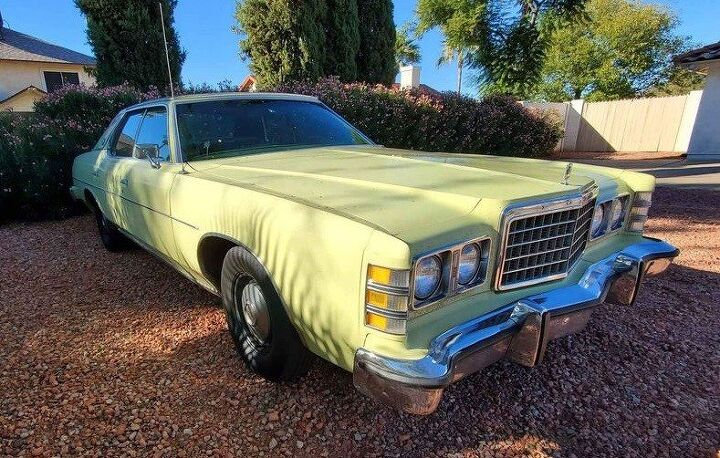
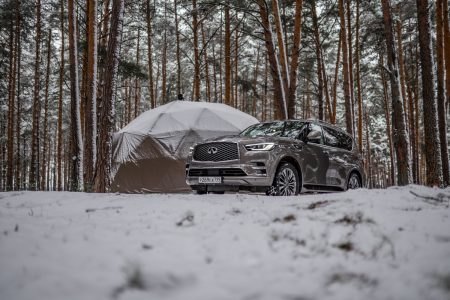
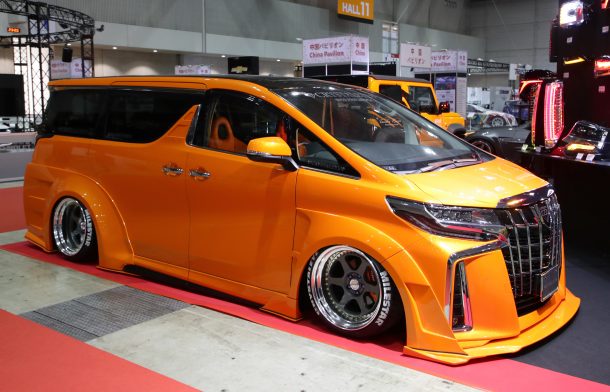





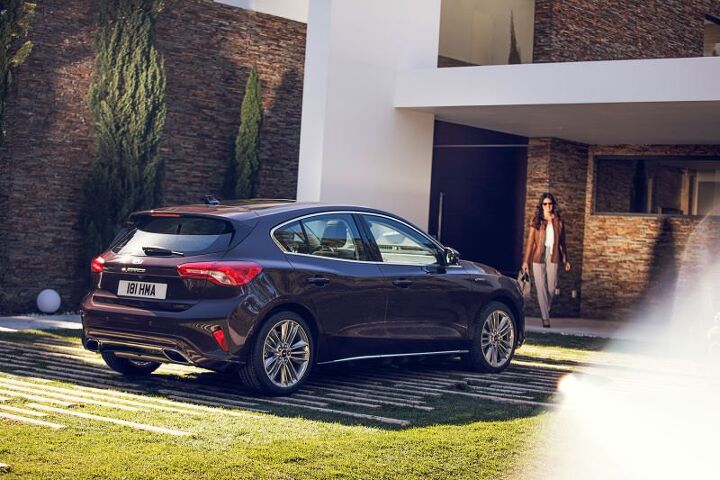


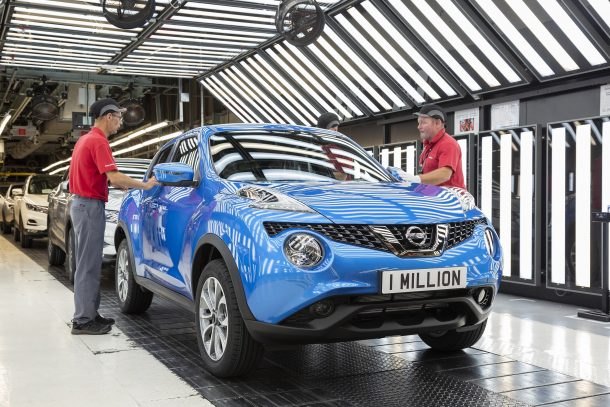

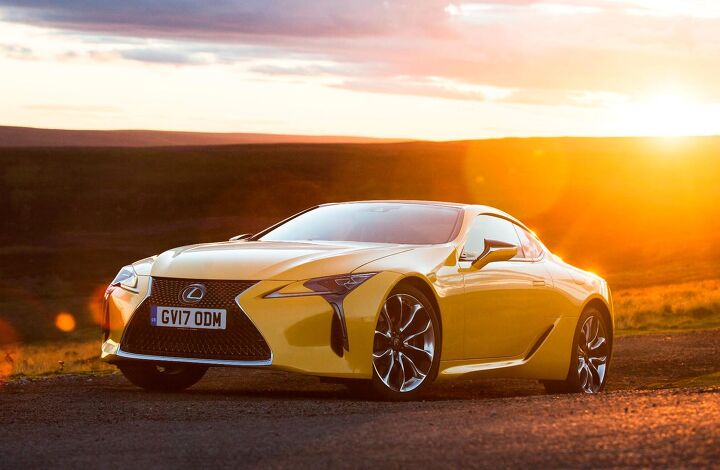






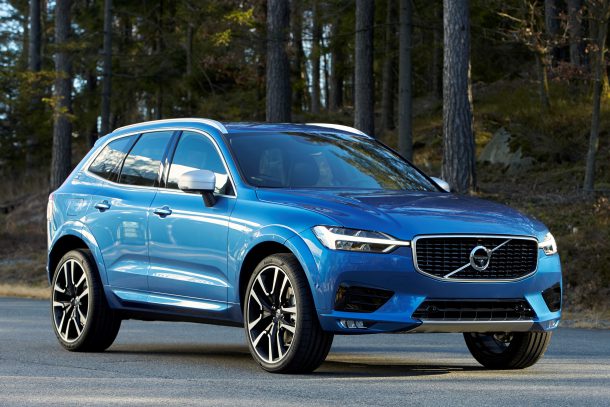





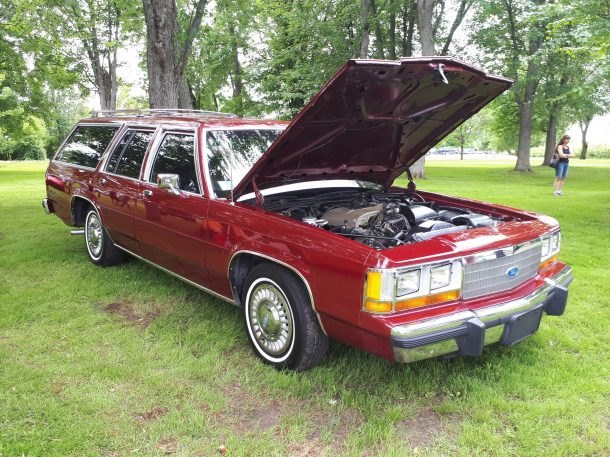

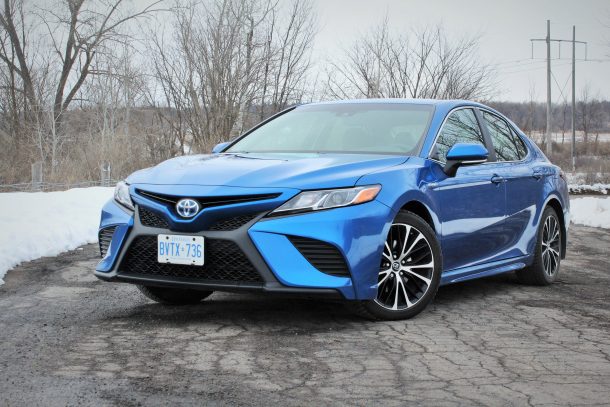


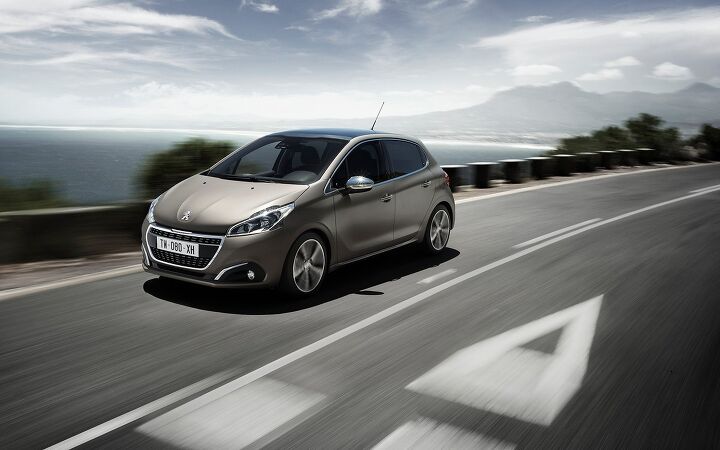



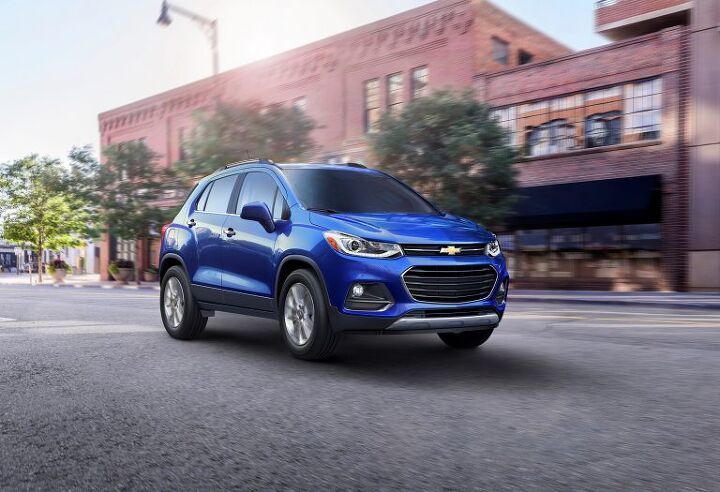

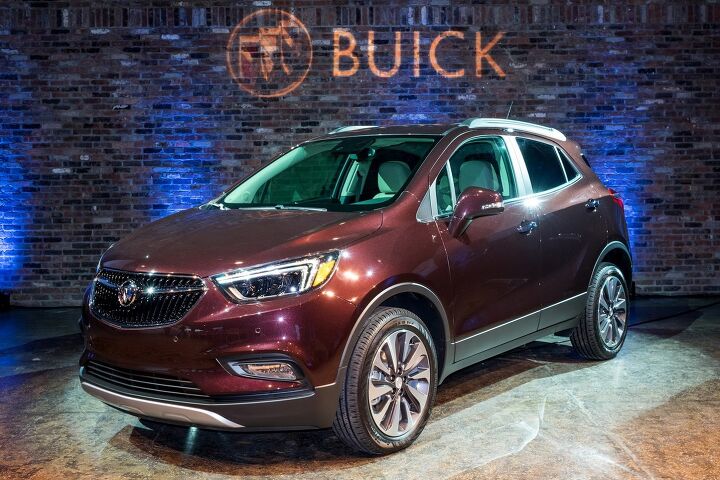



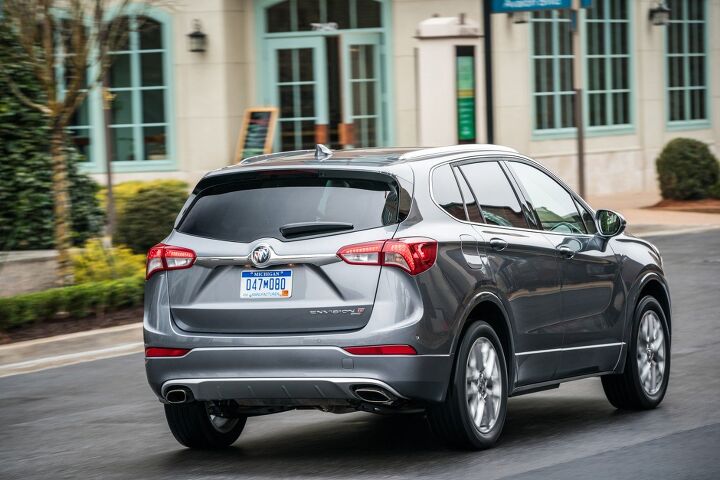









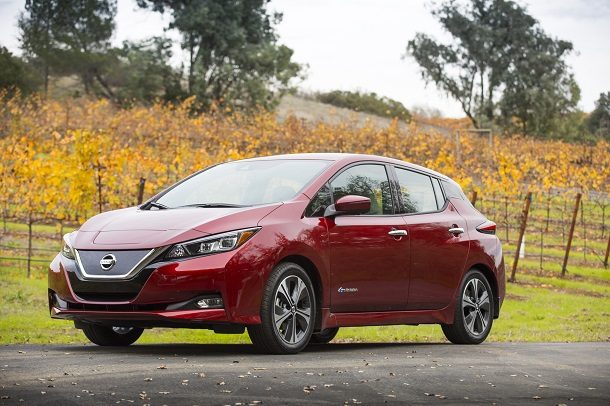




















Recent Comments